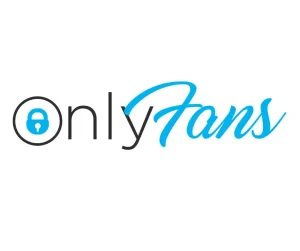FTC Shuts Down $50 Million Growth Cave Scam: Fake Business & Credit Repair Promises Exposed.
A federal court has temporarily shut down the Growth Cave scam, a fraudulent business opportunity and credit repair scheme that allegedly stole $50 million from consumers since 2020.
The Federal Trade Commission (FTC) filed a lawsuit against the operation and its leaders—Lucas Lee-Tyson, Osmany Batte (aka “Ozzie Blessed”), and Jordan Marksberry—accusing them of deceptive marketing and false income promises.
Growth Cave’s Deceptive Business Model
Growth Cave lured consumers through YouTube ads and email marketing, selling an online program called Knowledge Business Accelerator (KBA). The scheme promised participants they could earn $20,000 to $50,000 in passive income by creating and selling digital education programs.
In promotional videos, Lee-Tyson claimed to be a self-made millionaire and marketing expert, while Batte touted his mindset coaching and hypnosis certification. They showcased luxurious lifestyles as proof of their program’s success—but according to the FTC, their wealth came from scamming consumers, not legitimate business ventures.
How Consumers Were Scammed
-
High-Pressure Sales & False Guarantees
- Growth Cave convinced consumers to schedule “strategy calls”, where they were told they’d make money within 4 to 6 weeks.
- A $10,000 profit guarantee was promised, yet rarely honored.
-
Lack of Real Support
- Customers paid thousands of dollars for the KBA program but found Growth Cave’s promises empty.
- The company provided generic ad templates instead of customized marketing materials, leaving users struggling to make sales.
-
Expensive, Worthless Upgrades
- Growth Cave pushed a $30,000–$50,000 upsell called Digital Freedom Mastermind (DFM), promising done-for-you services that never materialized.
- Most consumers never made a single sale, despite spending tens of thousands of dollars.
Other Fraudulent Ventures by Growth Cave
Cashflow Consultant Academy (CCA)
Growth Cave also sold a program called Cashflow Consultant Academy (CCA), which claimed to train users to close sales for wealthy business owners. Consumers paid up to $6,800, expecting high-paying placements, but most never got any clients—or any income.
- Many endorsements in CCA promotional videos were fake, featuring Growth Cave employees instead of real customers.
- In rare cases where clients were assigned, they were often other victims of Growth Cave’s KBA program, not legitimate business owners.
Buffalo Bridge: The Credit Repair Scam (2023)
- Growth Cave launched Buffalo Bridge, a fake credit repair service, targeting consumers who had already lost money to KBA and CCA.
- Customers were charged $6,800 upfront for what was supposed to be credit repair and 0% business loans. Instead, they were simply signed up for multiple business credit cards.
Growth Cave’s Continued Fraud Despite Legal Actions
Even after facing private lawsuits, Growth Cave’s leaders continued launching new scams:
- In March 2024, Lee-Tyson rebranded Growth Cave as "PassiveApps", selling an AI-driven program that, according to the FTC, followed the same deceptive blueprint as KBA.
- The FTC alleges that Lee-Tyson reused the same fake testimonials from KBA to market PassiveApps.
- Batte launched ApexMind, another scheme similar to CCA, using the same fraudulent tactics.
FTC’s Legal Action & What Happens Next
The FTC has charged Growth Cave’s operators with violating:
✅ The FTC Act
✅ The Business Opportunity Rule
✅ The Credit Repair Organizations Act
✅ The Reviews and Testimonials Rule
The lawsuit was filed in the U.S. District Court for the Central District of California. A federal court has temporarily halted Growth Cave’s operations while the case proceeds.
Chris Mufarrige, Director of the FTC’s Bureau of Consumer Protection, stated:
“Consumers seeking to start a business deserve an honest chance—not false promises of reliable income and expert help.”
The FTC has made it clear that it will take decisive action against business opportunity scams like Growth Cave.
How to Protect Yourself from Similar Scams
🚨 Beware of “too good to be true” income promises. Legitimate businesses don’t guarantee thousands of dollars in passive income.
🚨 Research companies before investing. Look for verified consumer reviews, complaints, and legal actions.
🚨 Avoid high-pressure sales tactics. Scammers push quick decisions to stop you from thinking critically.
🚨 Read the fine print. Many “profit guarantees” are filled with hidden conditions that make them meaningless.
🚨 Report scams to the FTC. If you’ve been targeted by a similar scheme, file a complaint at ReportFraud.ftc.gov.
Final Thoughts
The Growth Cave scam serves as a warning to aspiring entrepreneurs about the dangers of business opportunity fraud. The FTC’s legal action aims to protect consumers from false income promises and hold fraudulent operators accountable.
Would you like updates on this case? Subscribe to our newsletter for the latest consumer protection news.
🔗 Share this article to help protect others from online scams!





















